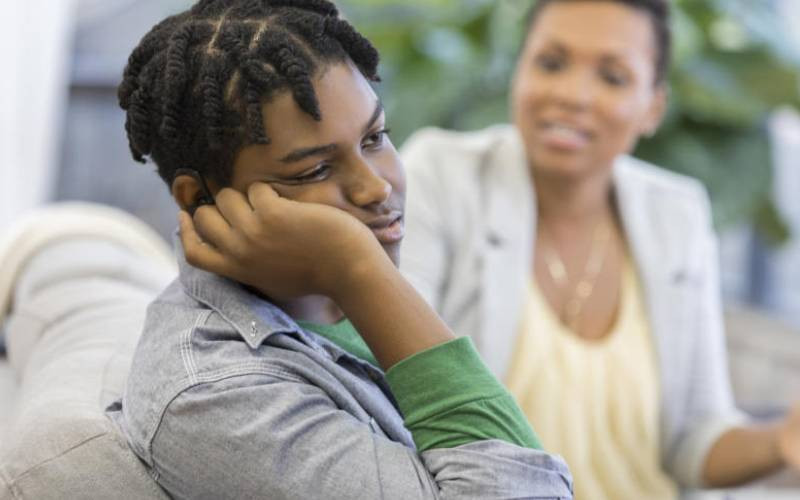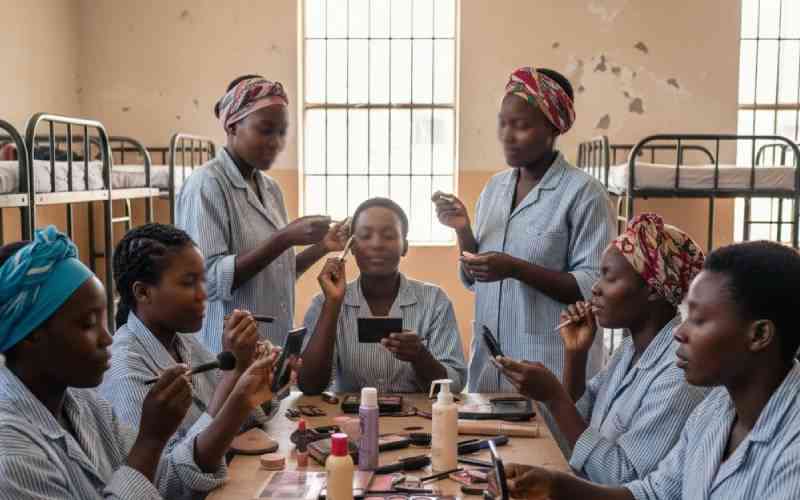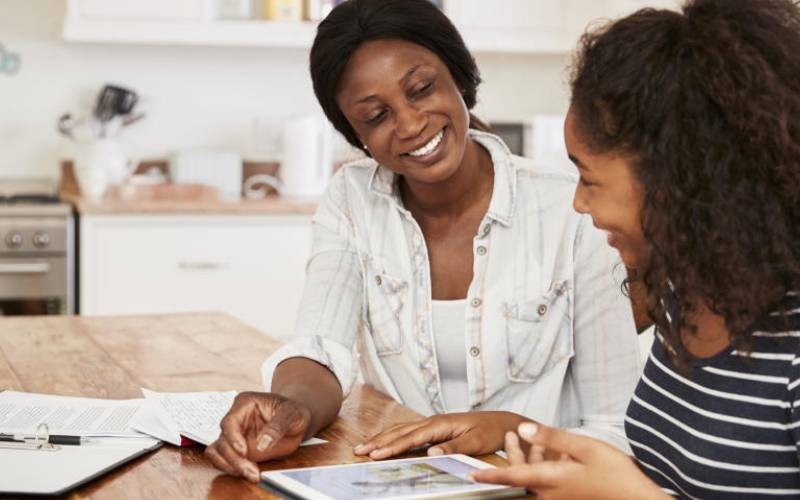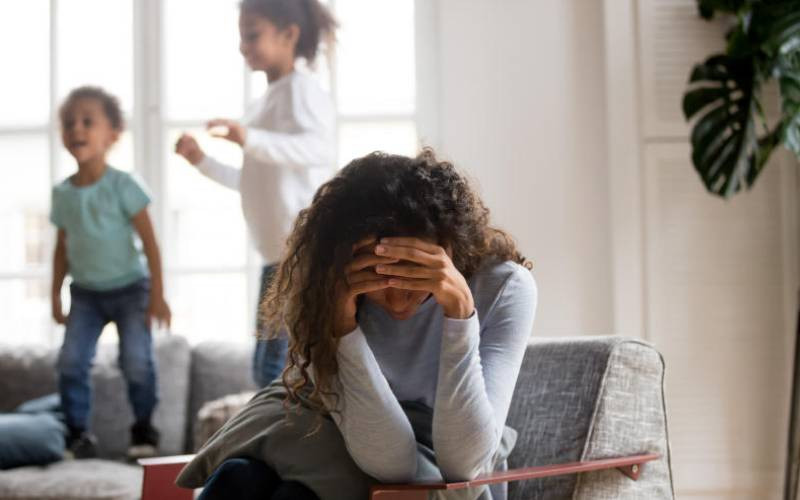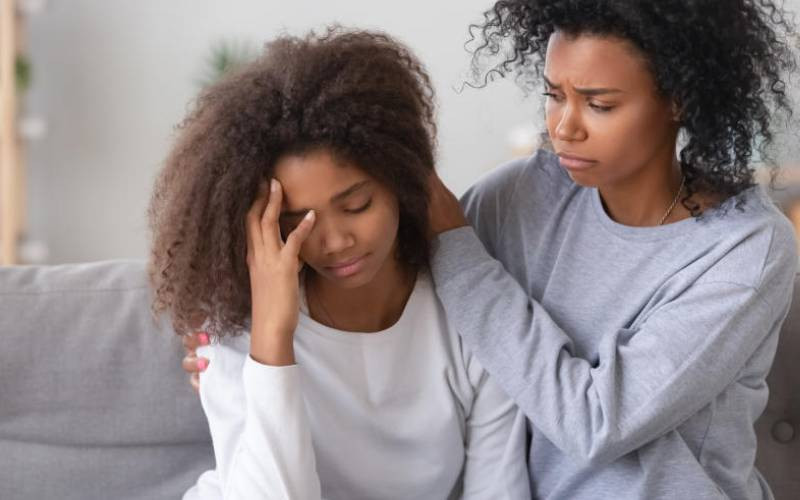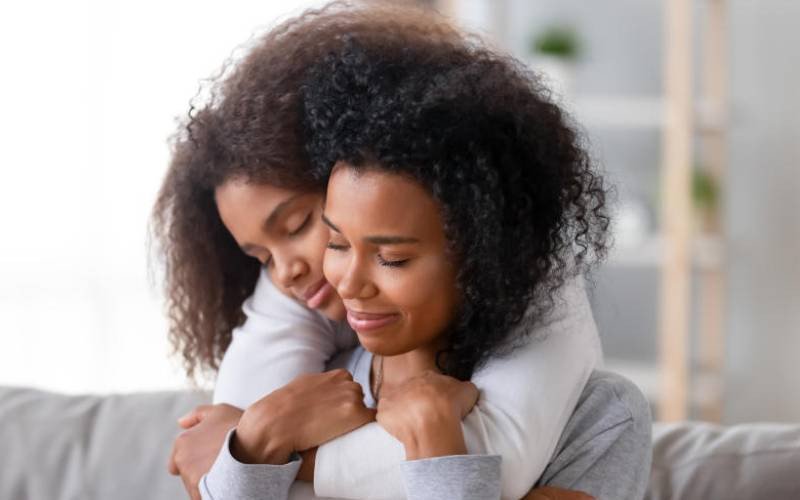
Placing a protective hand over my bump, I daydreamed about what it was going to be like to give birth.
Pregnant with my first child, I smiled as I imagined the moment our baby would be placed in my arms, my husband Chris and I gazing at him lovingly.
I thought maternity leave would be full of coffee and cake, baby swimming and baby yoga classes.
Sam and I didn’t get to experience any of that. I went into labour six weeks early in October 2011. Sam was “back to back”, which meant I was in a lot of pain and was rushed for an epidural.
“I’m frightened,” I said to a midwife as I was wheeled to the delivery room.
Sam was distressed and his heart rate was dropping, so forceps were used to get him out. It was a chaotic delivery and Sam needed to go straight into special care.
As the epidural wore off, I started shaking with shock. “You’ve had a bad tear,” a midwife explained. It extended from my vagina to my rectum, but I’d been stitched up and presumed I’d get better.
After a few days, I could not understand why I had faeces in my pants, or where it was coming from.
I was in excruciating pain, but when doctors examined me they said the tear was healing.

I didn’t want to cause a fuss, but the pain got worse. A nurse tried to examine me but couldn’t get near me without me screaming. I had to be given gas and air so they could examine me.
I was told I had a fourth-degree tear, a huge abscess and a rectovaginal fistula, which is an abnormal connection between the rectum and vagina.
My only option was to have a colostomy, which would divert faecal matter from the digestive tract through an opening in the abdominal wall, known as a stoma, into a colostomy bag.
I was told the bag would be needed for 12 weeks, to give the wound a chance to heal.
I spent two weeks in hospital and was taught how to clean the stoma. I hated it, but as it was only going to be temporary I tried to cope.
In just three months, I told myself, this would all be over and I could get on with motherhood.

Catastrophic damage
A month after Sam was born, I received a letter from the hospital saying that the tear should never have happened and an investigation had been launched.
I thought I’d just been unlucky, but it was dawning on me that something really terrible had happened.
I wondered if I’d ever be able to return to the job I loved, in the police force.
The colostomy bag would fill at the most inappropriate times, and it was always leaking. I couldn’t even look after myself, let alone do such a full-on job.
During check-ups, doctors realised the damage to my sphincter was much worse than they thought. I met with the consultant who had delivered Sam and she apologised.
“I don’t want your apology,” I said. “If you hadn’t got Sam out, he would have died. You made a mistake, which has had catastrophic consequences for me, but don’t forget you saved a child’s life.”
I didn’t want to sue, but I needed to be recompensed because I was being medically retired due to what happened.
For my case to progress, I had to have many intrusive, horrific tests.
These confirmed the tear had caused so much damage I’d need a colostomy bag forever. I was diagnosed with postnatal depression and PTSD.

Emergency operations
Because of the fistula, every time I exercised and got hot, I got an infection, leading to sepsis. I was put on heavy-duty antibiotics and twice needed emergency operations to drain the sepsis.
Chris worked away on oil rigs so I was often alone with Sam, and I was a mess. We’d be in a supermarket and the bag would suddenly fill and start to leak.
One time, I had to ask a stranger to watch over Sam while I dashed to the loo. I felt so lonely and isolated.
The friends I’d made at a prenatal yoga class had textbook births and were busy enjoying motherhood.
I hid the bag under loose clothes because I was so self-conscious. I had to move slowly due to the fistula, and a walk to the woods near our home which used to take 15 minutes now took over an hour.
It took a year before Chris and I could be intimate again.
I had to be careful of how I held Sam in case he accidentally kicked my stoma. It felt like I was keeping him at arm’s length.
It wasn’t until Sam was seven months old that I gazed down at him and realised I loved him.
I didn’t blame Sam, but I felt angry for the damage his birth had done to me. With therapy, I understood we had been through a trauma together and he was a daily reminder of what happened, but we were both so lucky to be alive.

Looking for hope
When Sam was two, the NHS Trust settled out of court. I spent a lot of time asking, what if this had never happened to me?
I scoured forums looking for hope, but all I found were other people with stomas saying they couldn’t go camping, cycling or swimming.
Once I’d had surgery to fix the fistula, life improved, and I could finally start exercising more. I was overweight and unfit, but I felt determined to reclaim my body and my destiny.
My first challenge was the Chevy Chase 2013, a 20-mile hike across the two biggest hills in Northumberland.
It took almost eight hours, but I did it. Now, with my trusty colostomy bag by my side, I have competed in triathlons and half-Ironmans. I’ve skydived and been wild swimming, wild camping and sea kayaking.
Sam and I took a scuba-diving course, something I was specifically told I’d never be able to do with a stoma. Never let your fears stand in the way of your dreams.
Psychologically, it’s quite a hurdle having sex again with a bag of poo on your stomach, and it does take away the spontaneity as I have to empty the bag before we do anything.
But after 19 years together, it’s not an issue. I wear a band around my waist when in bed as I cannot bear the idea of my bag against my husband’s skin.
This winter, I’m raising awareness for the Birth Trauma Association. I’ll be wearing a bikini for a wild swim, three times a week until May.
Recently, Sam overheard me talking about his traumatic birth and, now nine, he asked, “Is it because of me you need the bag?” I wrapped my arms around him. “I’d take you and the bag, any day,” I said.
I have a different life to the one I envisaged. But the hope that my story inspires others to overcome their trauma has given me new purpose. Maybe I can’t be a police officer, but I can help people in another way.’
 The Standard Group Plc is a multi-media organization with investments in media
platforms spanning newspaper print
operations, television, radio broadcasting, digital and online services. The
Standard Group is recognized as a
leading multi-media house in Kenya with a key influence in matters of national
and international interest.
The Standard Group Plc is a multi-media organization with investments in media
platforms spanning newspaper print
operations, television, radio broadcasting, digital and online services. The
Standard Group is recognized as a
leading multi-media house in Kenya with a key influence in matters of national
and international interest.





